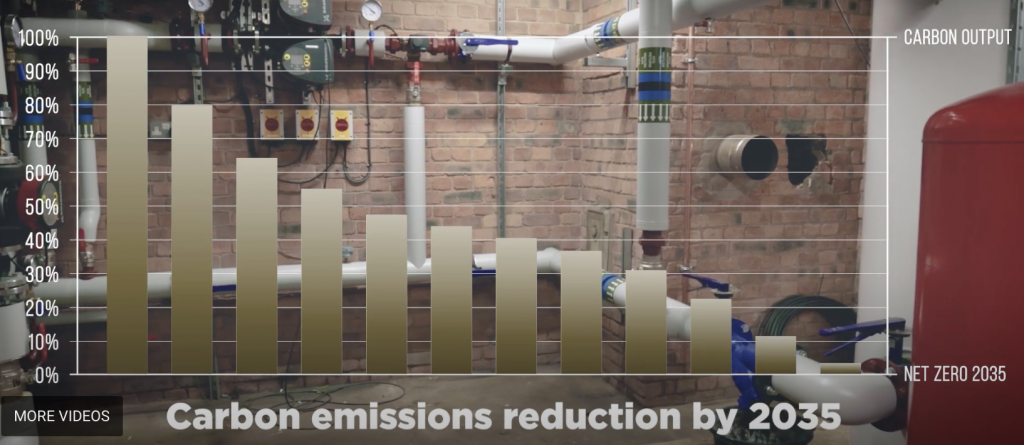Gloucestershire Constabulary’s de-carbonisation strategy to be net zero by 2035 has taken another huge leap forward.
The Constabulary, together with the Office of the Police and Crime Commissioner (OPCC), were praised last year in a national report on environment and sustainability for using a wide range of renewable technologies.
Gloucestershire is the only police force in the country to hold the ISO 14001 certification, the internationally recognised standard for the environmental management of businesses, and has the largest percentage of electric vehicles of any police force in the country. Now, it is estimated that installing an air-source heating system in three of its largest buildings, will play a big part in reducing the organisation’s carbon footprint still further.
Gloucestershire Constabulary’s Environmental Manager Mandy Gibbs said, “We are a large employer in Gloucestershire so we try to lead by example. We are always trying to improve our environmental performance by decarbonizing as much as we can.
“As a public sector organization, it’s leading by example because we don’t have to do it. We do it because we think it’s the right thing to do and we want to do it”.
The contract with Cotswold Energy Group, was to install a bespoke air-source heating system in the Tri-Service Centre at Waterwells, Gloucester – which houses the Constabulary’s control room – Stroud Police Station and the Forest of Dean Police Station in Coleford.
As a result, it is estimated the Constabulary’s carbon emissions will be reduced by 85% over the next twelve years. It is the equivalent of taking 870 cars off the road, 893 flights fewer around the world and planting 181,818 trees.
Watch a video of how the air-source heating system was developed:
Cotswold Energy Group Managing Director Jon Bonnar said, “We engaged with the Constabulary very early in the process to give them advice on what was feasible and achievable on each of the sites. And what would be the most straightforward way to get carbon saving.
“One of the key considerations working in the blue light sector, is the necessity that every building remains operational at all times. When you’re installing a new heating system, new pipes and new radiators, that’s quite a challenge to overcome.
“We were able to deliver ideas that were tailored to each of the three buildings; particularly bespoke solutions that delivered a cost-effective de-carbonisation plan for each of them”.
In its report on environment and sustainability the Association of Police and Crime Commissioners put Police and Crime Commissioners (PCCs) ‘at the heart of the decarbonisation agenda’. It highlighted the work done by PCCs up and down the country to reduce the carbon footprint in their force area and ensure a sustainable future.
APCC Joint Leads on Environment and Sustainability, Joy Allen and Tim Passmore, said: “PCCs have a critical role to play in ensuring that their forces, commissioned services, and offices are employing environmentally friendly and sustainable practices.
“If we do not act now, the implications for policing could include growing protest movements, more civil emergencies (such as flooding), a rise in organised crime groups taking advantage of demand for resources and demand on the police to enforce new legislative restrictions against those causing environmental harm.”

